Photo: Courtesy of YOASOBI
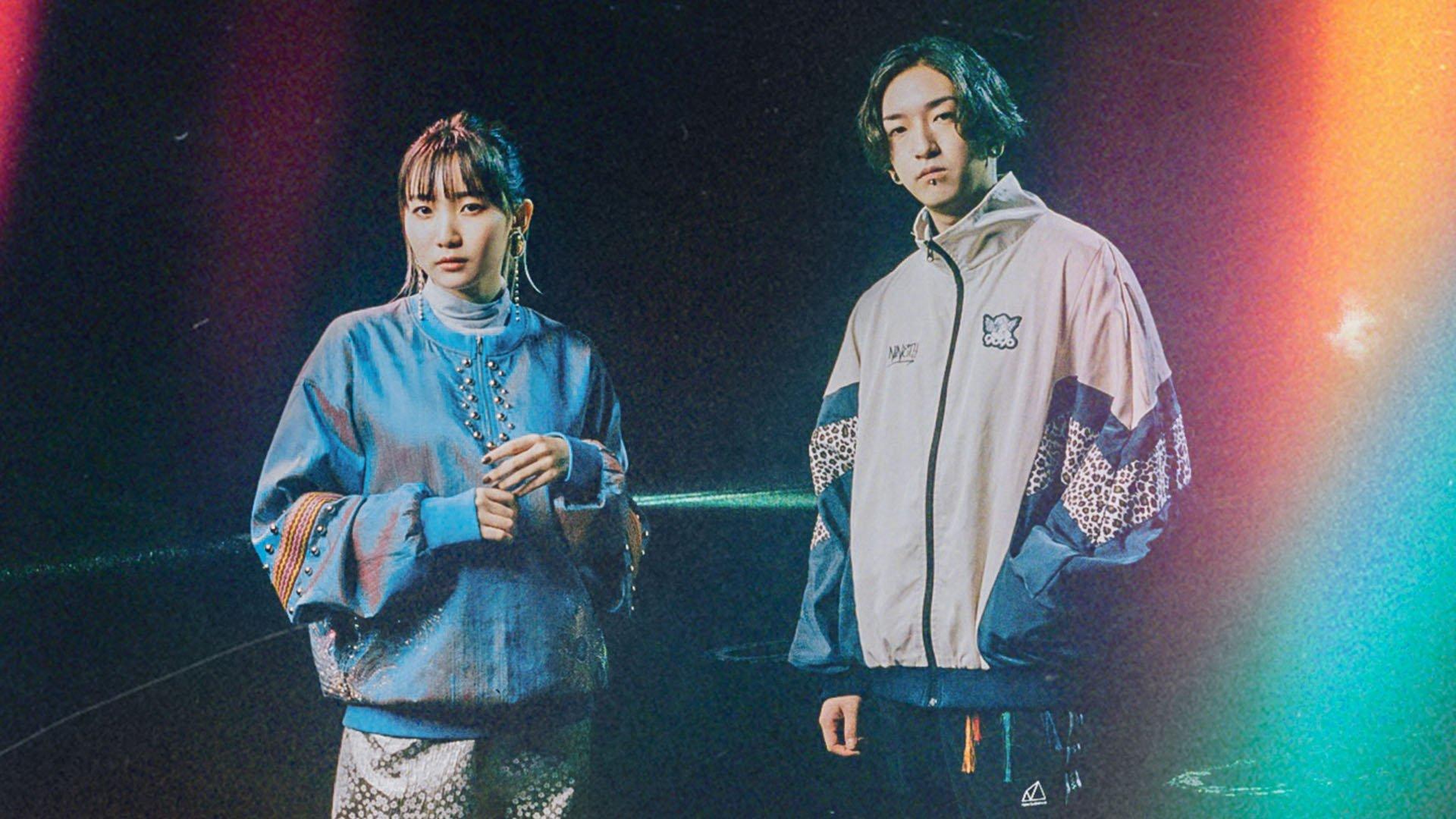
video
It Goes To 11: How One Piece Of Technology Makes YOASOBI's Musical Vision Come To Life
Japanese music duo YOASOBI are known for their fast-paced, hard-hitting electronic sounds, but none if it would be able to happen without one essential: their laptop.
The majority of the music that electronic J-pop duo YOASOBI makes uses Logic Pro and Vocaloid, so it's no surprise that their favorite item in their collection is the object that makes it all happen: their laptop.
"I rarely use real instruments in my compositions," the group's producer, Ayase, reveals in the latest episode of It Goes to 11. "With this program, I am able to reproduce and manipulate the sound of the guitar, piano, and drums without doing any actual recording."
The convenient thing about using a laptop is that Ayase never has to go to the recording studio — so whenever he gets a burst of inspiration, he can immediately begin working on a song. "I open up Logic Pro and plop my laptop on the dining room table," he says. "That's how I spend my days."
Before recording the vocals for the music, Ikura uses Vocaloid to first hear the song's melodies in Hatsune Miku's voice. "With Hatsune Miku's voice, we are able to achieve peculiar melodic scales and rhythm patterns we can manipulate freely," she explains.
Almost all of YOASOBI's music has been inspired by manga and other Japanese media — and having the ability to transform one form of content into "another shape or form" is what they love most about their work.
Press play on the video above to learn more about how YOASOBI produces their music, and check back to GRAMMY.com for more new episodes of It Goes to 11.
9 Thrilling Moments From KCON 2023 L.A.: Stray Kids, RIIZE, Taemin & More
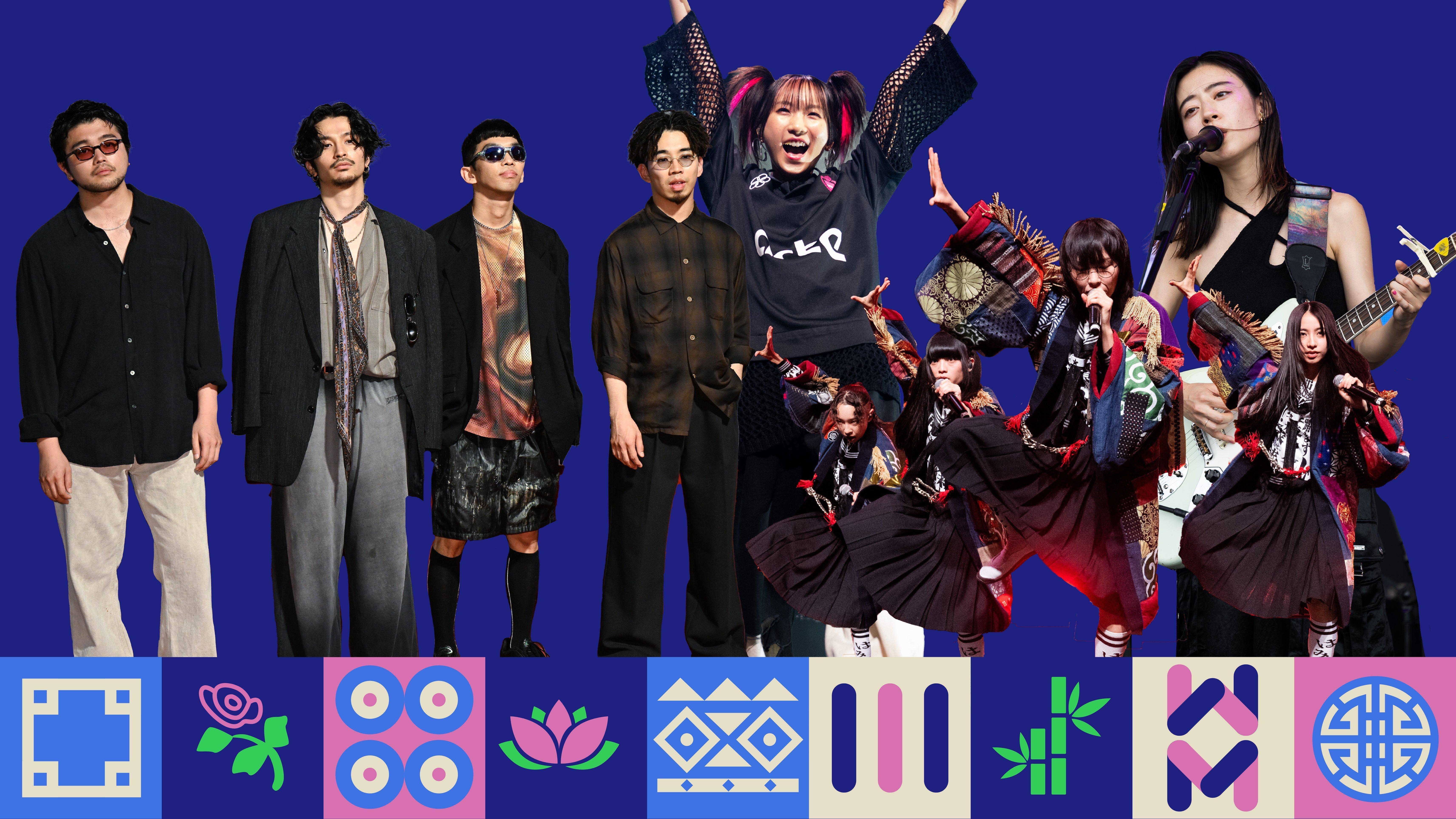
Photos: Scott Dudelson/Getty Images for Coachella, Dana Jacobs/Getty Images, Justin Shin/Getty Images, Gene Wang/Getty Images
list
10 Neo J-Pop Artists Breaking The Mold In 2024: Fujii Kaze, Kenshi Yonezu & Others
Japan’s domestic pop market has incredible depth and growing Western interest. From Vocaloid acts to anime-centric productions and a plethora of genre-bending releases, the country's musicians and solo artists are breaking ground and making noise.
At this year’s Coachella, Japan’s music industry made a statement: out with the old, in with the new. Where previous years hosted legacy acts like Utada Hikaru and Kyary Pamyu Pamyu, up-and-coming hitmakers YOASOBI and cult favorites Atarashii Gakkou! played to sizable crowds in 2024. They represent just the tip of the iceberg for Japanese musicians touring stateside: J-R&B star Fujii Kaze will tour the country this month, and numerous acts have seen exposure abroad thanks to anime soundtrack work and streaming playlists such as Spotify’s Gatcha Pop.
Anime, by far the country’s biggest cultural export, is a major factor in Japan’s music industry, with songs composed for animated films, TV, and streaming projects — and to a lesser extent video games — making up a growing number of the country’s most dominant pop hits. "Anison," or anime songs, have become extremely prestigious commissions for the country’s pop musicians, especially for younger artists who have seen anime gain traction both in Japan and internationally.
That younger generation is now taking control of the charts, and making inroads into international markets by leaning into what makes their music and culture unique. For musicians like Kenshi Yonezu, vocal synthesizer software Vocaloid allowed them to develop their own musical voice on their own terms. The most famous Vocaloid artist, Hatsune Miku, also played Coachella this year as a video-projected anime avatar. There’s also remarkable freedom to play with genre in J-pop. Acts freely swap between sounds —from alternative rock to funky city pop, or R&B to electro-pop — in the span of a few songs.
These factors have made Japan’s domestic pop market one of the most interesting to watch in the world. It’s gotten to the point where top English-language artists aren’t seeing the success they used to in the country, largely because the Japanese public has shifted its attention toward Korean and domestic artists. For Westerners, Japan can seem like another world, and this is especially true for its music scene.
To bridge the gap, GRAMMY.com has created a primer to 10 of Japan’s most interesting new acts. Who knows, you might just see them stateside soon.
Ado
Japan isn’t exactly a happy country. Social pressure is high, the economy has been stagnant for years even before its current monetary crisis and its brutal work culture is not exactly the envy of the world. Young people often feel as though they have nothing to look forward to but misery, so when someone comes along and says it’s okay to tell the adults in your life to f— off, it resonates.
This is essentially how 22-year-old singer Ado (born 2002) became the voice of Gen Z. Late in 2020 amid the stresses of the COVID-19 pandemic, she burst onto the J-pop scene with "Useewa," a rock-centric track composed by Vocaloid producer Syudou whose title translates, roughly, to "Shut the f— up." Detailing the angst of having to grin and bear the conformity of adulthood and the satisfaction of rejecting it, the song clearly struck a chord with young people in Japan. The song’s brash lyrics also sparked a moral panic from parents and the media over its anti-conformist message.
Ado’s charismatic, fiery vocal delivery, coupled with a nasty anime visual, really sells the whole package, making it a rage-filled counterpart to YOASOBI’s similarly disaffected "Yoru ni Kakeru."
"Usseewa" topped the Billboard Japan Hot 100, the Oricon Digital Singles and Streaming charts, and the Spotify Viral 50 Japan. The video reached 100 million views on YouTube within 150 days of release. Ado has since earned more hits, furthering her wild persona with the even louder and wilder "Show." She also earned a starring role as a singer in One Piece Film: Red, the most recent theatrical installment of the biggest manga franchise in the world.
Atarashii Gakko!
There’s a saying in Japan about the risks of refusing to conform to society’s expectations: "The nail that sticks out gets hammered down." When it comes to finding success on the international music market, however, the opposite seems to be true. The world loves Japan when it’s at its zaniest and most distinctive, and artists that lean into this are often able to build a following abroad.
Case in point: A rapping girl group wearing vintage-inspired sailor-suit school uniforms called Atarashii Gakko! (translation: New School). The group just played Coachella and, prior, performed on "Jimmy Kimmel Live." To be sure, a lot of the foursome’s appeal is in the visual department. The group’s wild, Beastie Boys-esque video for "Tokyo Calling" pairs their sukeban girl gang-style outfits with a plethora of retro visual references: kaiju films like Godzilla, Super Sentai, even Bollywood-style dance. Musically, they’re just as mixed up, having taken on ‘80s city pop in "Otonablue" as well as adding to Japan’s legacy of unique hip-hop on "NAI NAI NAI."
The group’s ethos since forming in 2015 has been to shine a new path for Japan’s youth by embracing individuality and nonconformity, and it’s paid dividends so far. Their new album, AG! Calling, is set for release June 7.
Creepy Nuts
There’s a lot of bizarre, potentially conflicting elements in Creepy Nuts’ hit song "Bling-Bang-Bang-Born." There’s the sound-effect-bubble title, the anarchic rapping of vocalist R-Shitei, and producer DJ Matsunaga’s use of a Jersey Club beat (a trend with forward-thinking East Asian pop acts). There’s also the fact that it was composed for an anime about…wizards with muscles?
In any case, the theme song for the TV anime "Mashle: Magic and Muscles" has pulled some chart magic of its own, topping the Billboard Japan Hot 100 for eight weeks straight earlier this year, largely thanks to the viral "BBBB dance" challenge. The duo have also taken the song worldwide, reaching No. 8 on Billboard U.S.’s Global 200 and performing the song on Global Spin. If you want to find the biggest J-Pop hit of this exact moment, look no further.
Fujii Kaze
Raised in small-town Okayama prefecture in the western reaches of Japan, Fujii Kaze is being positioned as the next big artist to emerge from the country. He toured Asia in 2023 and will come to America this May; he also launched the Japanese version of Tiny Desk Concerts earlier this year. He’s also been working with international talent, such as Kendrick Lamar and 21 Savage producer DJ Dahi on the piano-driven hip-hop track "Workin’ Hard."
The video for "Matsuri," in which Fujii (the artist lists his surname first) traipses around a Japanese garden and parties with foreigners at a traditional mansion, feels almost like a tourist advertisement for the country, projecting an image of refined, effortless Japanese cool. Recent song "Hana," produced by Charli XCX and Utada Hikaru collaborator A. G. Cook, feels even more like a play for the international market with a ‘70s California soft rock backing track and a visual that puts Fujii on a journey through the desert.
Herein lies the secret to Fujii Kaze’s appeal: he’s hot and cool at the same time. His success is predicated not just on good looks and buttery croon, but on a smooth, easygoing persona that feels native and international at the same time. "Matsuri," with its chill yet glamorous R&B production and can’t-be-bothered lyrics ("there’s no reason to suffer / no need to be disappointed / I really couldn’t care less") exemplifies his laid-back mentality. He’s also, notably, shunned the anime market, preferring to put his songs in basketball promos and telecoms commercials – anime is cool enough for Megan Thee Stallion but not for Fujii, it seems.
Hitsujibungaku
Just as grunge reignited America’s love of rock music in the ‘90s, Japan also embraced guitar-oriented, pop-rock in the same decade thanks to bands like B’z, Number Girl, Southern All-Stars, Asian Kung-Fu Generation, and Visual Kei groups like L’Arc-en-Ciel and X Japan. As the U.S. began to embrace hip-hop and dance-pop in the 2000s, rock and metal persisted in the Japanese mainstream. New bands continue to perform at "live house" venues in hip areas like Tokyo’s Shimokitazawa neighborhood, while groups playing niche styles like math rock, shoegaze, and metalcore have found support. CHAI, tricot, Alexandros, Otoboke Beaver, and Official Hige Dandism are just a few bands that have emerged from this milieu in recent years to success at home and abroad.
Tokyo-based trio Hitsujibungaku offers a good starting point of where Japan’s rock scene is going. The majority-female group found success on the anime song circuit last year, delivering the end credits track for mega-popular TV anime "Jujutsu Kaisen." "More than words" which became the lead single for their recent album 12 hugs like butterflies, immediately stuck out for its shuffling, nostalgic melody, and evocative, fuzzy layering of guitar tone influenced by shoegaze.
Kenshi Yonezu
More than most mega-successful J-pop artists, Kenshi Yonezu owes his success to the Vocaloid and internet music communities in which he forged his artistry. Raised in rural Tokushima, he began his career as a teenager in the late 2000s, uploading music to the video site Nico Nico Douga under the name Hachi, and soon found his most successful tracks were the ones that used Vocaloids like Hatsune Miku. Like many artists in the digital age, Yonezu’s early work was entirely DIY, as thanks to Vocaloid he was able to produce, write, and even design artwork for his music all on his own.
Eventually, Yonezu signed to a major label and began to split time between his Vocaloid tracks as Hachi and music made under his own name. His album Bootleg won Album Of THe Year at the Japan Record Awards in 2018, and he became known for tender, uptempo ballads like "Uchiage Hanabi" and "Lemon" (the latter of which still reigns as the most-viewed video by a Japanese musician on YouTube with over 800 million views).
Two high profile anime commissions have driven Yonezu’s star beyond Japan. In 2022, he produced the opening theme for the highly-anticipated adaptation of Tatsuki Fujimoto’s acclaimed manga Chainsaw Man. "Kick Back" departed from Yonezu’s biggest hits by leaning into the show’s action premise with drum and bass beats and an aggressive guitar melody. Buoyed by the anime’s success, "Kick Back" topped the Oricon and Billboard Japan singles charts and even charted in the U.K., Canada, and the U.S., where it became the first Japanese-language song to be certified gold by the RIAA.
Then in 2023, he produced and sang "Spinning Globe," the end credits theme for Hayao Miyazaki’s first film in a decade, The Boy and the Heron. It was the first time the anime auteur, who usually uses older pop music or score from usual composer Joe Hisaishi, had chosen a contemporary pop artist to write for him.
King Gnu
King Gnu aren’t afraid to mix it up. They gained acclaim in Japan by pursuing a pop rock sound that’s one part city pop, one part hip-hop. Tracks like "Hakujutsu" and "Kasa" pair sick riffs and boogie basslines with turntable scratching and delicate, yet powerful vocals from Daiki Tsuneta and Satoru Iguchi.
Last year they scored a major hit with "Specialz," which was used as an opening theme for popular anime "Jujutsu Kaisen." Setting the mood for the show’s bleak second season with metallic techno drums and brawny guitar riffs, the menacing song peaked at No. 2 on the Billboard Japan Hot 100 and currently has over 166 million Spotify streams. Tsuneta also leads the collective millennium parade, who lean toward electronic music and scored a hit with "U," from the Mamoru Hosoda musical anime BELLE.
MAISONdes
Conceptual projects are much more common in the Japanese pop landscape than one might expect. Case in point: MAISONdes. While not a band or a collective, MAISONdes is an imaginary apartment building where lonely hearts find solace in song. The virtual building is accessible through a website, and each song produced for the project is assigned a room number and created by a randomly-paired team of producers and vocalists that changes with each track. Participants have included chart star Aimer and VTubers such as KAF and Hoshimachi Suisei.
Too complicated? Too weird? At least the music is good, focused on high-energy electro pop reminiscent of Kyary Pamyu Pamyu, idol pop, and the Vocaloid, anisong, and netlabel acts of recent decades. As such, the most high-profile MAISONdes tracks have been those produced for anime and promotional campaigns. They’ve done all the opening and ending themes for the recent TV anime reboot of classic comedy manga "Urusei Yatsura," and their most recent track, "Popcorn" was a collab with Sanrio celebrating the 50th anniversary of Hello Kitty, one of the original kawaii culture icons. The hyperactive song gained a million views on YouTube within three days of being posted.
Vaundy
City pop — the ‘70s and ‘80s musical movement that blended American funk and AOR with disco and synthpop — looms large in the J-pop landscape. Although its revival has somewhat peaked following the pandemic, that hasn’t stopped guys like Vaundy from channeling the sound into their own music.
His breakout hit "Tokyo Flash" paired the grooves of the city pop era with a more down-to-earth arrangement with simpler production. Further attempts to modernize the sound have also found success: "Todome no Ichigeki," written for the popular anime "Spy x Family," featured a grand, orchestral instrumental and a guest verse from rapper Cory Wong. With romantic lyrics reminiscent of City Pop king Tatsuro Yamashita, it’s a true return to the retro style.
Of course, like most J-pop musicians, Vaundy isn’t a stylistic purist. He’s also applied his confident vocal style to several brisk rock tracks, resulting in chart success. His heavy metal jam for the Chainsaw Man TV anime soundtrack, "CHAINSAW BLOOD," peaked at 13 on the Billboard Japan Hot 100, while the poppier "Kaijuu no Hana Uta" went to No. 2 after he performed the song on the "2022 Kohaku Uta Gassen" New Year’s Eve show.
YOASOBI
Inarguably the focal point of contemporary J-pop, no other act has defined the current era in Japan more than YOASOBI. The duo of Ayase and Ikura burst onto the scene in 2019 with the song "Yoru ni Kakeru," based on a short story posted on the site Monogatary. Pairing an upbeat instrumental with bleak, literary lyrics about death and suicide, it’s the most unlikely of pop hits. Released in late 2019, just as the COVID-19 pandemic began to grip Japan a few months before the rest of the world. "Yoru ni Kakeru" became a massive, award-winning smash. Billboard Japan named it the first song in its chart history to pass 1 billion streams, and Oricon named it the most-streamed song of the Reiwa era just last month.
Read more: From Tokyo To Coachella: YOASOBI's Journey To Validate J-Pop And Vocaloid As Art Forms
Since then the band have become major hitmakers and fixtures of the anison production line, writing theme tracks for hit anime like "Mobile Suit Gundam: The Witch from Mercury" and "Frieren: Journey’s End." They scored another era-defining hit with "Idol," their opening song for the controversial 2023 showbiz satire "Oshi no Ko." Responding to the anime’s twisted tale of a mysterious J-pop idol with dark secrets, the duo paired a bombastic instrumental with lyrics that perfectly capture the cardinal rule of stardom: tell all and reveal nothing.
The song became such a cultural phenomenon in Japan that YOASOBI performed it at last year’s "Kohaku Uta Gassen" New Year’s TV special flanked by dozens of J-Pop and K-Pop idols, including members of NewJeans, LE SSERAFIM, and Nogizaka46.
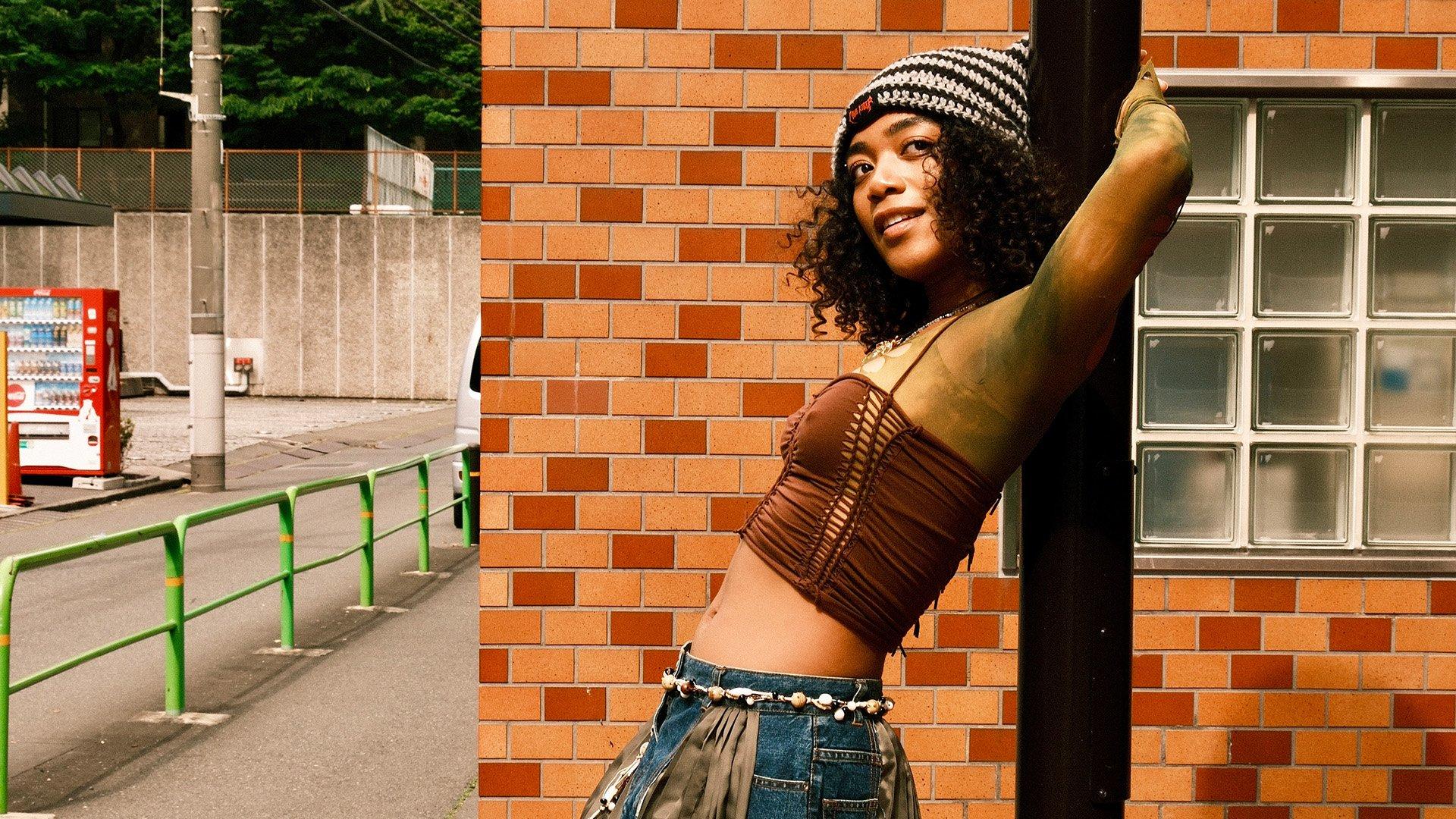
Photo: Ryusei Sabi
video
It Goes To 11: UMI Shows Off The Studio Gear That Streamlined Her Recording Process
Neo-soul singer UMI introduces her Apollo Twin X interface, the piece of musical gear that allows her to crank out her ideas "immediately."
Neo-soul singer UMI describes herself as a "multi-dimensional artist" whose ideas often come to her in the spur of the moment — and she "needs to get it out immediately."
Thanks to her favorite musical gear, the Apollo Twin X interface, she can bring her ideas to life on the go.
"Instead of going directly into your computer [to record], you can use something like this," UMI explains in this episode of It Goes to 11. "It helps to enhance the sound of what you're recording and makes the recording process easier."
Before she invested in her Apollo interface, she says she used to buy cheap ones for $50 or $100: "I thought I was getting the best experience, but then, I went to a studio. They had one of these. Ever since then, I've been like, 'This is my baby!'"
As a self-proclaimed "studio gear nerd," UMI exclaims that the Apollo Twin X isn't just a fancy part of her collection — it's changed her process altogether. "I don't have to book studio time anymore," she says. "I can do it all in my house!"
Press play on the video above to learn more about UMI's cherished Apollo Twin X interface, and check back to GRAMMY.com for more new episodes of It Goes to 11.
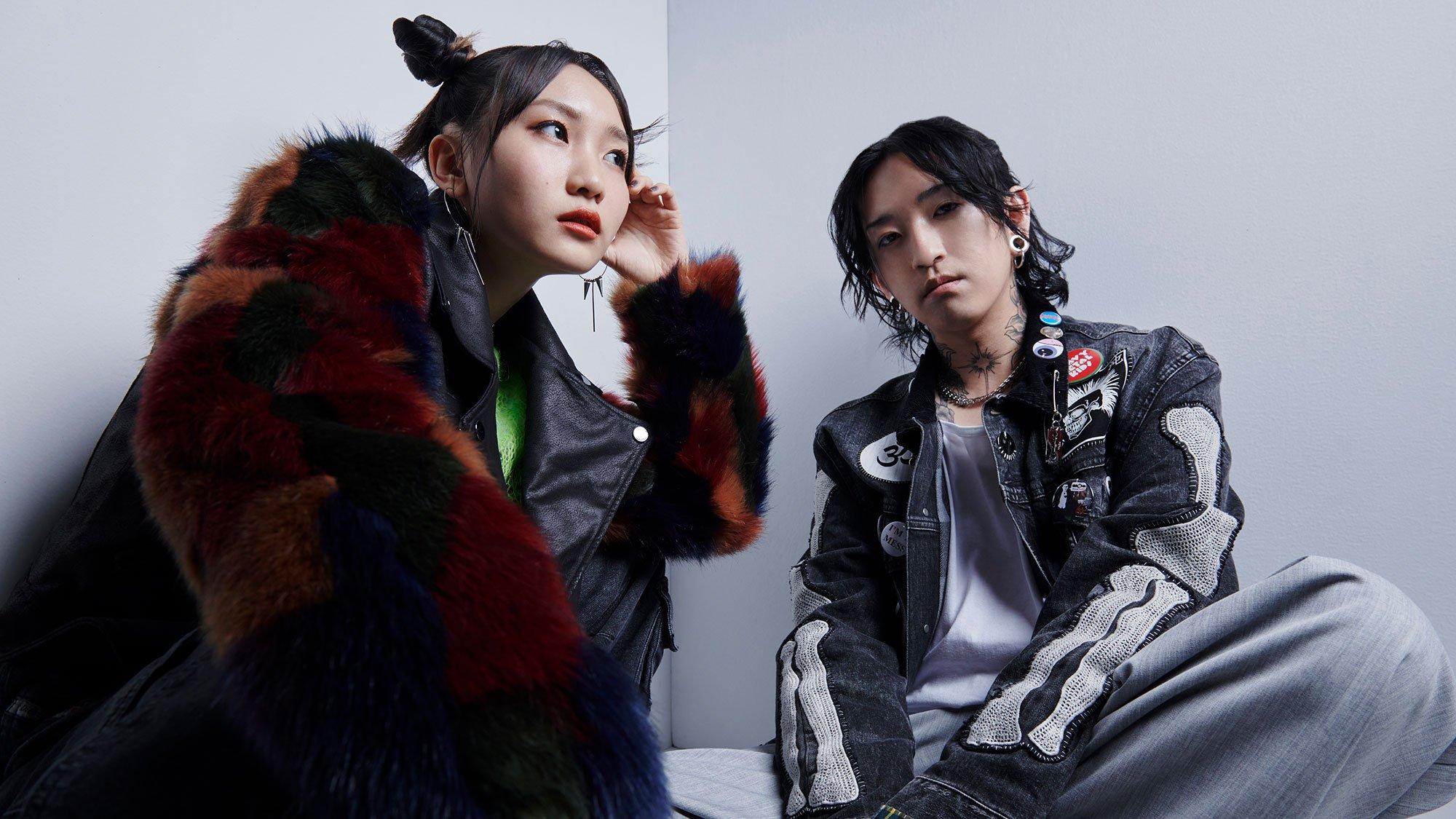
Photo: Kato Shumpei
feature
From Tokyo To Coachella: YOASOBI's Journey To Validate J-Pop And Vocaloid As Art Forms
YOASOBI, blending J-pop and Vocaloid with narrative-driven songs, is capturing a global audience through their performances at major festivals like Coachella and Lollapalooza, marking a significant moment for Japanese music on the international stage.
For decades, Japanese music has been one of the hardest to access as a foreigner. Even with the popularization of cultural exports like anime and the emergence of streaming platforms, it is still considered a niche, and fans often have to dig deep in order to find albums, translations, or any kind of content at all.
"There weren’t many opportunities for Japanese music to go out into the world until now," says YOASOBI’s producer and songwriter, Ayase, over a Sunday morning Zoom from Tokyo. "If we were to break into the mainstream, I think there’s a lot more work to do. Being a part of Coachella is one of them."
The duo, composed of Ayase, 30, and vocalist Ikura, 23, is gearing up for their first performance at the mighty Californian festival next weekend, plus two sold out headline shows in Los Angeles and San Francisco. In August, they are set to play at Lollapalooza in Chicago, IL.
"Performing at festivals like Coachella was one of our goals when we put our live team together, so I believe that it will be a place for us to grow further,” says Ikura, who lived in Chicago as a kid and considers these opportunities a "full circle" moment.
Read more: 10 Must-See Artists At Coachella 2024: Skepta, The Last Dinner Party, Mdou Moctar, Cimafunk & More
Formed in 2019, YOASOBI found overnight success with their debut single "Yoru ni Kakeru," a bright-sounding but harrowing tale that topped Billboard’s Japan Hot 100 chart for six non-consecutive weeks. They continued to rise further, recording five EPs (three in Japanese, two in English), the opening theme to Netflix’s anime series "Beastars," 2021’s "Kaibutsu," and their magnum opus so far: "Idol."
Released in 2023, "Idol" became a massive hit, placing No.1 at Billboard's Japan Hot 100 chart for 22 weeks and counting — an all-time record break. It was also the nineteenth best-selling song of 2023 worldwide, according to the IFPI. With these accolades, it’s easy to understand why the duo is fully booked, but what makes their music so enticing to global audiences?
Listening to YOASOBI is like entering a rabbit hole. First, you get hypnotized by the glistening synths, bursting like fireworks, and the rock riffs taking melodies to full-speed. Then, you discover their adage is "novel into music," and all songs are based on fictional stories written by various authors. There’s also the animated music videos, each with a different style, giving their sounds another layer for interpretation. And finally, there are Ayase’s and Ikura’s (under the name Lilas Ikuta) own solo careers — treasure troves ready to be unearthed.
"I don't know, to be honest," says Ayase when asked about their growing popularity. "I guess the fact that a lot of Japanese [exports] have been prevalent around the world had to do with it. But also, maybe it's because people are experiencing this combination of music with storytelling that is interesting to them." Ikura agrees, adding that YOASOBI allows fans to "enjoy this bigger world that we are part of in a more three-dimensional way."
The experience is similar to how they create their music: mining, collecting, mixing, and transforming different threads into a new fabric. From fictional stories, Ayase transmutes his feelings into beats on his laptop with Logic Pro, then inputs melodies and lyrics through Vocaloid softwares like Hatsune Miku. Ikura listens to the Vocaloid demos, and then adds her own feelings and flair into the interpretations. For English-language tracks, they work with translator Konnie Aoki, who is "very mindful of phonetic sounds," and Ikura listens to the Japanese versions up until it’s time to record, so that she can have "the right emotions set."
It’s such a natural process for them that Ayase is surprised to know that there are still people who don’t consider Vocaloid as "real" music. “Those people probably don’t know what music is,” he says with a laugh. “Do they think that instrumental music, where there's no human singing, isn’t real music? There’s really great Vocaloid music out there, and it’s basically [voices] created through synthesizing softwares. It's very different from AI, which is auto-generated music. Vocaloid is humans creating music using these softwares. That's the only difference from a human singing a song.”
To Ikura, who maintains her burgeoning solo career in tandem with YOASOBI’s busy schedule, Vocaloid allowed her to broaden her talents. "It is my first time singing songs that somebody else wrote, so it was an opportunity to challenge myself with things that I wouldn't necessarily write, or sing in a tone or voice that I wouldn't come up with myself." She says that these experiences influence her solo works all the time, in a "synergy" that allows her to "have more colors to work with in my palette."
"I started producing music through Vocaloids,” adds Ayase. “And it truly broadened my ideas and imagination when it comes to creating music. It allows creators to come up with melodies that a human singer may not come up with. It's a fascinating culture. The possibility I feel is infinite, and it really makes the impossible possible, in a way.”
Read more: It Goes To 11: How One Piece Of Technology Makes YOASOBI's Musical Vision Come To Life
Endless possibilities are also a big allure in AI technologies, but Ayase doesn’t see this as a threat. With the right boundaries, it’s just a tool — like Vocaloid, Logic Pro, and the internet — that can be used positively. "However, as a creator myself, I really hope that creative works come out of the imagination and ideas of the human mind. In that sense, [AI] may not be 100% a positive thing for us," he shares.
But that’s something for the future. Now, YOASOBI is focusing on their very real, very tangible events ahead. "Finally, we have this opportunity where people around the world are discovering our music. So, performing at festivals like Coachella, Lollapalooza, or doing our solo shows, I think it's important that we communicate with the audiences and maximize this opportunity as much as possible," says Ikura.
And it’s not just YOASOBI getting all the attention: according to data and research company Luminate, J-pop in general is on the rise. "I’m very proud, as a Japanese person, for that situation. For us, it’s really about taking it one step at a time," says Ayase. “Our ultimate wish is to have our music or reach as many people around the world as possible, and so we will continue to work hard every day."
9 Essential K-Pop/Western Collabs: From BTS And Megan Thee Stallion, To IVE And Saweetie
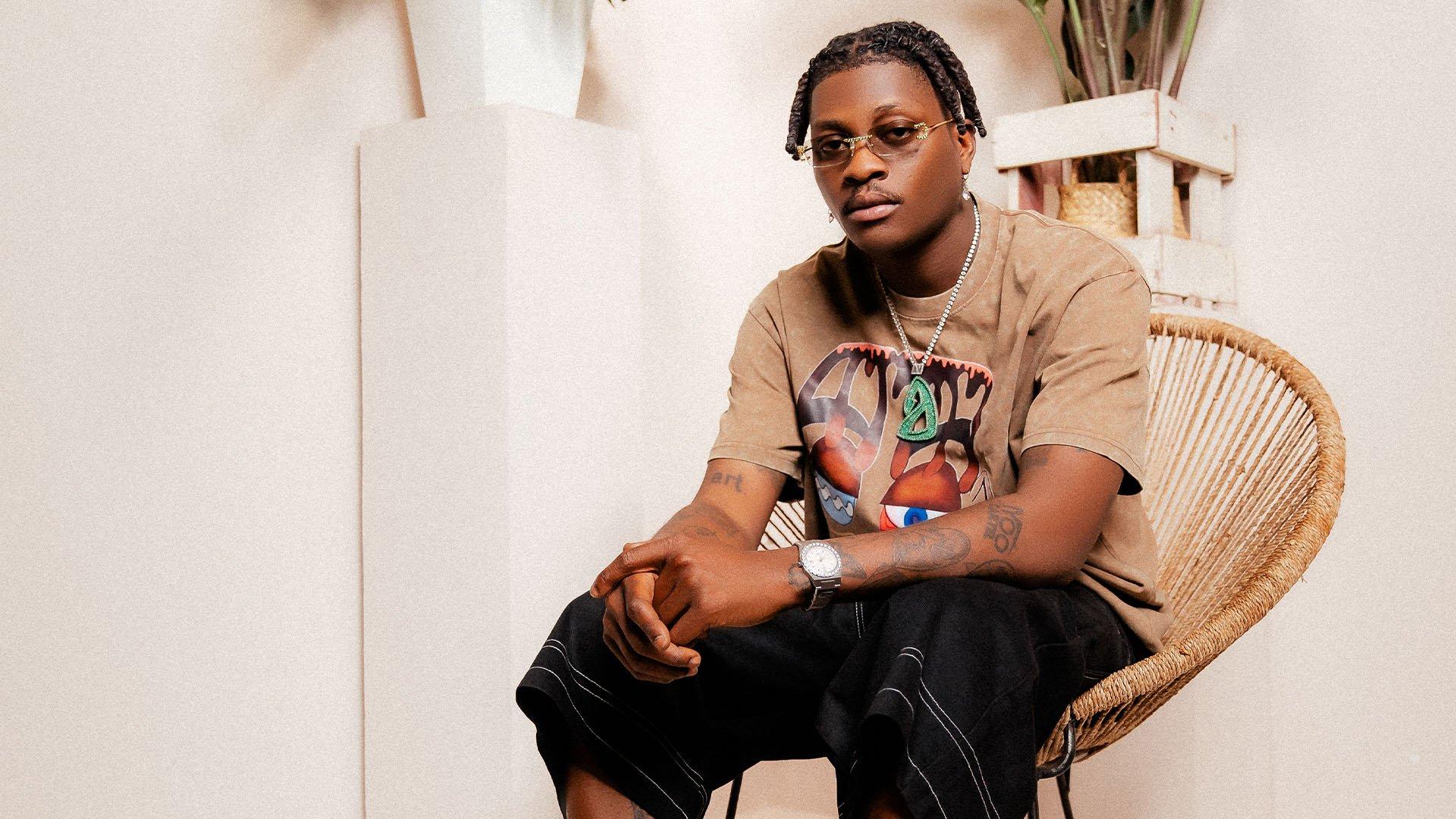
Photo: Mr. Earl
video
It Goes To 11: PsychoYP Reveals How An Equipment Explosion Led Him To Making "Crazy" Music
Nigerian rapper PsychoYP introduces his Aston Spirit condenser microphone that he found when he had to replace all of his equipment — which ended up being a blessing in disguise.
When a faulty extension box burst PsychoYP's equipment into flames, the Nigerian rapper was forced to repurchase everything from scratch. In doing some extra research on replacement items to prevent the accident from occurring again, he discovered a new favorite: his shiny Aston Spirit condenser microphone.
As PsychoYP recalls in this episode of It Goes to 11, once he purchased the Aston Spirit, "I knew I was about to start making some crazy music. The producer looked at me, and I looked at him and was like, 'I feel like we might be onto something.'"
The rapper says the Aston Spirit captures his voice perfectly, and even opened up a new side of his artistry: "It made me express myself more — open my mind a bit more while creating."
Despite the initial pain of losing his equipment, PsychoYP asserts that the accident resulted in a forever piece. "I feel like I'm going to have a catalog of microphones, but this will always be there," he says. "At least in my top two."
Press play on the video above to learn more about why PsychoYP loves his Aston Spirit condenser microphone, and remember to check back to GRAMMY.com for more new episodes of It Goes to 11.
